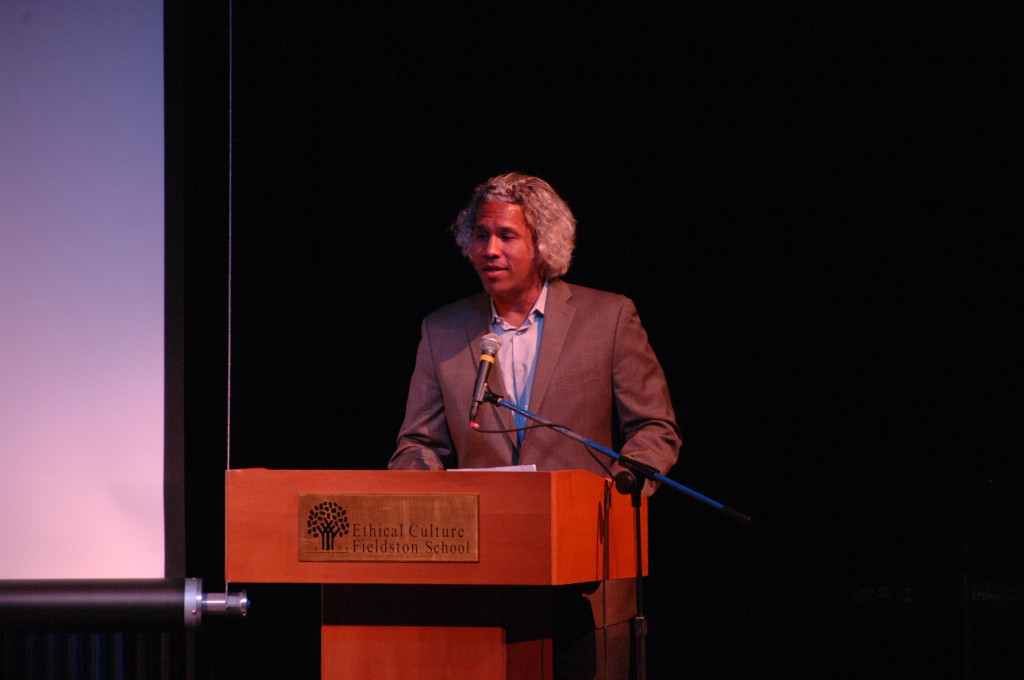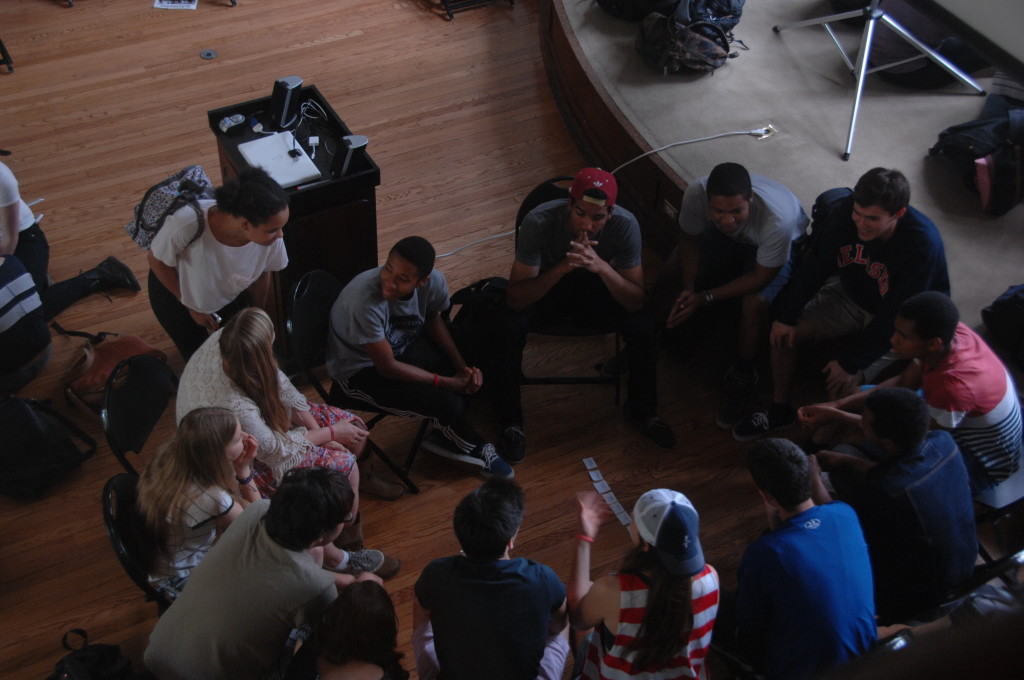
On Tuesday, May 13th, Fieldston held a Modified Awareness Day (MAD) on gender, power, and consent. This long anticipated event began with an all-school assembly, at which student planners Juliet Lewis (VI), Paul Schorin (V), Dena Miller (V), Tamar Gordis (VI), and Ocean Gao (V) introduced the day and their goals. Juliet perhaps summed up what was to come best, asking the audience to “imagine how great it would be if you never felt pressure to hook up with more girls or boys at a fest than you were comfortable with, if senior girls didn’t have to consider which colleges had the strongest policy of enforcement against sexual assault. How awesome it would be if you never felt pressured to say yes when you wanted no, or no when you wanted yes, if sex could actually be about pleasure and not social conventions. That’s what today’s about.”
After the introduction, the assembly transitioned to a video showing Fieldston students being interviewed about these issues. Questions ranged from those as seemingly straightforward as “Can you define consent?” to ones more difficult and uncomfortable, such as “At what point is someone too drunk to give consent?” Students’ frankly honest answers set the tone and provided a basis for the day’s coming activities.
Khary Lazarre-White (‘91), who started the tradition of Awareness days as Student Body President in 1990, spoke about his opinions on the culture of consent today, emphasizing the importance of these issues to our generation. He says that we will experience the issues in college, on the workforce, and with our own children. He explored the connections between these issues and the existence of the patriarchy, which, as he thoughtfully noted, are impossible to separate. Upper School principal Laura Danforth finished the assembly by sharing a moving personal account of sexual violence and leaving the student body with the question “Are you going to be part of the problem or part of the solution?”

The afternoon MAD sessions addressed the problems that Laura Danforth was referring to. I attended three of the afternoon’s MAD sessions: Fest Culture, Psychology of Rape Culture, and Victim-Blaming. Fest Culture was formatted in a fishbowl-style, beginning with a discussion for boys and girls to talk separately and then transitioning into an all-inclusive conversation. The MAD, which lasted for two bands, varied from discussions about whether or not giving consent “ruins the moment” to debates about the differences between what is expected of boys and girls at the parties. At one point, the group talked about the difference between a boy asking a girl for consent and a boy expecting a girl to stop him if she is does not want to proceed; the group discussed how the latter puts the responsibility on the girl to speak up. The MAD discussed whether or not fests could really change, exploring the possibility of people drinking responsibly, or all of the girls showing up in jeans. Would these actions really alter anything?
The next session I attended – Psychology of Rape Culture – focused on the psychological factors that contribute to widespread assumptions about rape in our society. The session planners presented four psychological phenomena: sex-role stereotyping (the belief that in all cases men pressure women and not the other way around), sexual conservatism (blame victims for participating in nontraditional sexual activities), adversarial sexual beliefs (the idea that all sexual behavior is inherently exploitative), and just-world fallacy (in which people think that the world must be populated by good people and therefore it must be victims’ fault, not rapists’). Each of these phenomena contributes to the general public’s attitude towards victim blaming and toleration of rape. Throughout the session attendees got a better idea of what causes people to think and act the way they do about rape in our society.
In the last workshop I went to, Victim-Blaming, those present discussed the public’s tendency to charge rape to the behaviors of the victim; what she was wearing, what she was doing, and where she was at a certain time of day. These ideas go hand-in-hand with slut shaming and contribute to the lack of justice in many rape cases. For example, we looked at a news report covering trials in Steubenville, Ohio for the rape of a sixteen-year-old girl by two high school football players. The group discussed how the video sympathized with the boys and their ruined futures, barely even mentioning the victim’s trauma and possibly compromised future that could result from the rape. This was a slightly different yet equally harmful type of victim blaming that glorifies the perpetrator and disregards the victim’s struggle. This and other topics discussed during the session made attendees think more deeply about what it means to blame the victim and how these behaviors can be damaging.
These sessions, the assembly, and the other activities held throughout the day really did make students think critically about what it means to be part of the problem, or part of the solution. The MAD, if nothing else, brought about awareness of the current situation and what needs to be done. Since that day, I personally have noted people talking more and more about issues of gender, power, and consent, demonstrating that the day did exactly what it intended: it sparked a conversation.






